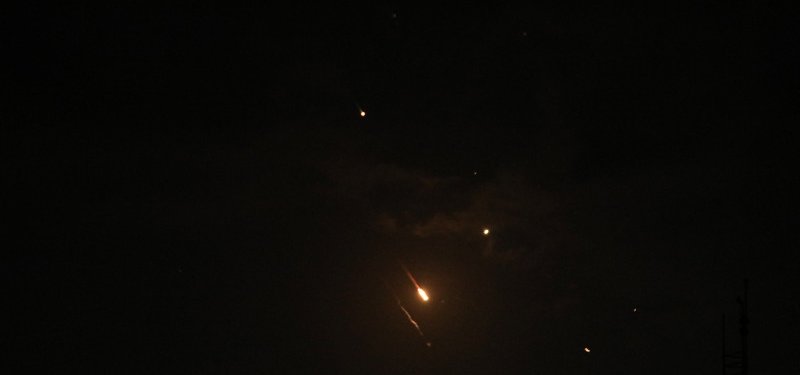
Countering Iran's overnight attack costs Israel $1.35B: Israeli media
Israeli media reported that the interception of dozens of Iranian missiles and drones by Israel overnight incurred a cost of up to 5 billion shekels ($1.35 billion). Each Arrow missile used for interception costs $3.5 million, while a Magic Wand missile costs $1 million, in addition to aircraft sorties involved in interception.
- World
- Anadolu Agency & AFP
- Published Date: 01:07 | 14 April 2024
- Modified Date: 01:07 | 14 April 2024
Israel's interception of dozens of Iranian missiles and drones overnight cost Tel Aviv up to 5 billion shekels ($1.35 billion), Israeli media reported on Sunday.
The daily Yedioth Ahronoth quoted Brig. Gen. Ram Aminach, the former financial advisor to the Israeli chief of staff, as saying that "the cost of defense last night was estimated at between 4-5 billion shekels ($1.08-1.35B)."
"I am only talking about interception to what the Iranians launched and not injuries that were marginal this time," he said.
"One 'Arrow' missile used to intercept an Iranian ballistic missile costs $3.5 million, while the cost of one 'Magic Wand' missile is $1 million, in addition to the sorties of aircraft that participated in intercepting the Iranian drones," Aminach said.
Earlier on Sunday, the Israeli newspaper Haaretz quoted the Israeli army spokesman Daniel Hagari as saying that about 350 missiles and drones were launched from Iran at Israel, most of which were intercepted.
He confirmed that minor damage had occurred at the Nevatim air base in Beersheba while "99 "99% of the threats against Israel were intercepted."
"25 out of 30 cruise missiles were intercepted, and of the more than 120 ballistic missiles, only a few of them penetrated Israeli territory and landed at the Nevatim air base," he added.
Hagari pointed out that "Iran's attempt to destroy the capabilities of the Israeli Air Force has failed, and that the Nevatim base continues to operate."
He said that in addition to the launches from Iran, missiles and drones were also launched from the territories of Lebanon, Iraq and Yemen.
Iran conducted an airborne attack Saturday against Israel in retaliation for an April 1 airstrike on its diplomatic facility in the Syrian capital. The strike killed at least seven members of Iran's Islamic Revolutionary Guard Corps, including two top generals.
While Iran claimed hits on certain military targets, Israel asserted that most of the attacks were thwarted by air defense systems, although a missile did strike a military base in the southern region.
- World on edge: Tensions flare as Iran attacks Israel
- German foreign minister calls for more sanctions on Iran after attack
- 6.2 magnitude quake strikes Papua New Guinea
- Biden warned Netanyahu to 'think carefully' before Iran response, official says
- UN Secretary General Guterres says Middle East is 'on the brink'

